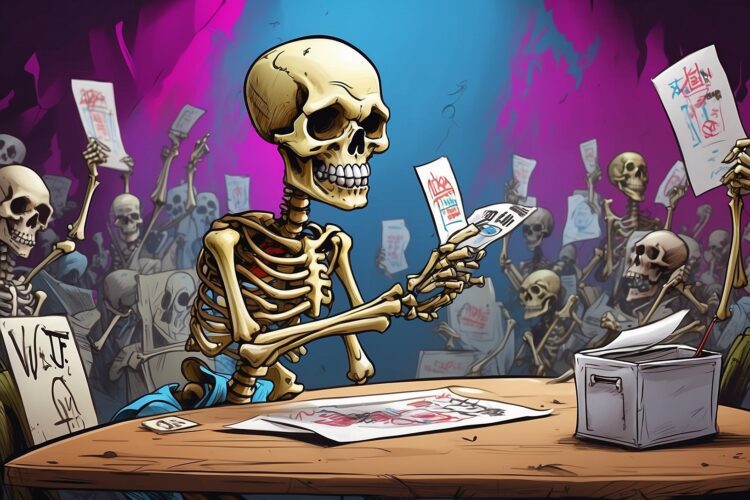Washington— In a bold move that challenges traditional notions of civic participation, there’s a growing discourse around the potential to expand voting rights to include the recently deceased. This proposal, while controversial, raises profound questions about representation, inclusivity, and the boundaries of citizenship.
At the heart of this new movement is a group of activists called “Dead Lives Matter” (DLM) . They speak on behalf of the most marginalized voter groups in america; individuals who have recently passed away. DLM argues that these individuals, having contributed to the social fabric and engaged in the political process throughout their lives, should have a say in shaping the future they cannot inhabit but have undoubtedly influenced.
The proponents of the movement express a compelling argument. “Just because they’re dead, doesn’t mean their vote don’t count!” Says DLM leader Dunkweenta Moofungo. The passionate woman describes herself as a radical Post-Life Advocate, and first came up with the idea when Fascist Trump supporters told her that her Uncle Marvin, who died in 1987, should not have had his 2019 vote for Biden counted. Moofungo explained, “It was incredibly discriminatory to suggest that just because someone was not alive that they shouldn’t be allowed to vote. If dead people weren’t allowed to vote, President Joe Biden might not be leading the country today. And that would be awful!”
The ethical dilemmas are complex. How do we accurately represent the wishes of those who can no longer speak for themselves? Does this extension of rights diminish the voting power of the living, or does it enrich the democratic process by honoring the cumulative wisdom of past generations?
Societally, this proposal prompts a reevaluation of citizenship’s temporal boundaries. It challenges us to consider whether death concludes one’s contribution to society or if one’s legacy should include a voice in shaping the future beyond their lifetime.
Expanding voting rights to the recently deceased is a provocative idea, laden with challenges but also offering a radical vision of inclusive democracy. It prompts a reconsideration of what it means to participate in the civic life of a community and how we define the rights and responsibilities of citizenship. As society evolves, so too does our understanding of democracy’s potential to include all voices, transcending even the boundary between life and death.














